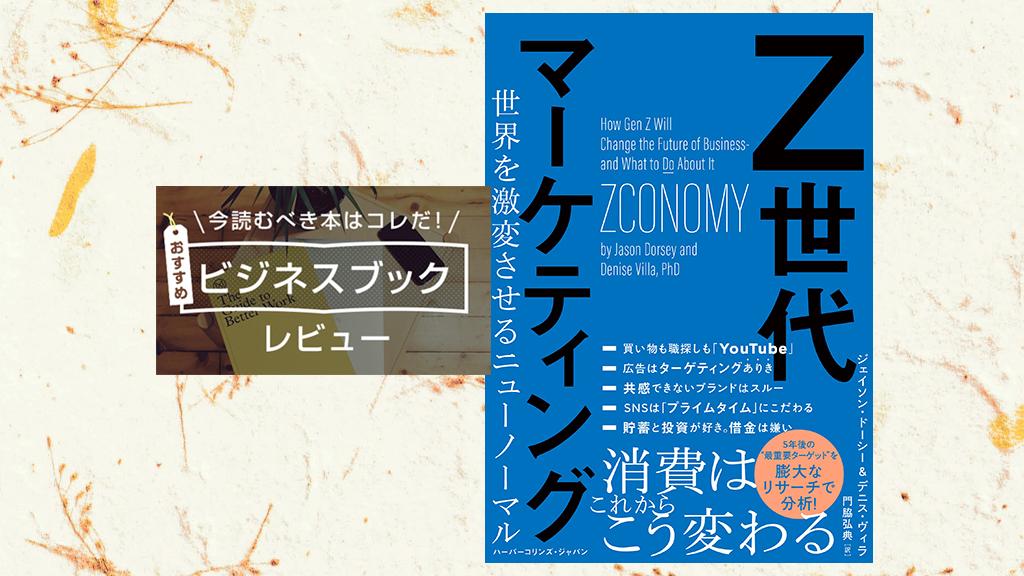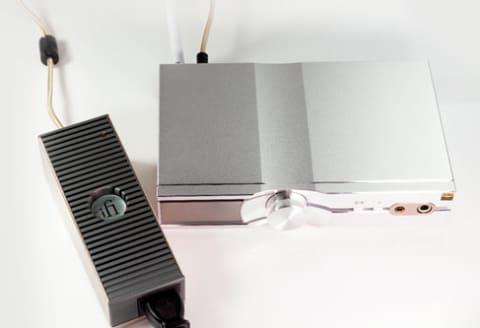At the age of 15, I went to England alone with an empty fist, relying only on my talent! After that……! ?? Now, we will deliver a trial reading from the autobiographical essay "Why did this happen?" By Dai Fujikura, a contemporary composer who "has the most performance opportunities in the world." * At the end of the article, there is an announcement of Dai Fujikura's valuable online event (finally today! From 19:30 on March 16, 2022). Do not miss it.
* * *
It was a mess, but I safely entered the graduate school of the Royal College of Music. It was September 2000. The graduate school composer is Edwin Roxburgh.
Edwin was the exact opposite of Darryl, a conductor who performed many contemporary songs in major British orchestras, and was once the Sadler's Wells Opera (now the English National Opera). (= ENO) is also the chief oboe player (I think he often participated in the BBC Symphony Orchestra as an extra player at the same time), and tried to introduce many contemporary songs as a repertoire. Edwin also premiered Verio's "Sequenza VII" and Heinz Holliger's (Swiss oboe player, composer and conductor, born in 1939) "Cardiphony".
He has many symphonic works such as concertos for soloists and orchestras, choruses and orchestras. I especially like "Clarinet Concerto" (1995) and "Saturn" (1982). "Clarinet Concerto" is a concerto with an aspect like "concerto for orchestra", where the orchestra is as busy as a solo. And the solo clarinet part is also the ultimate in sophistication, with a writing style that is especially familiar with woodwind instruments. When I thought that "Saturn" was a thick orchestra, the high-pitched glittering sound was entwined and a gorgeous and intense sound swelled, and when I first heard it, I fell in love with it.
Darryl was deeply involved in jazz and pop, but I had never heard Edwin talk about non-classical music.
Edwin was a pioneer in the world of classical electronic music, and his frequently played oboe and electronics works "... at the still point of the turning world ..." It is a music with a European continental sound that does not make you feel "British style" at all.
That's right. Great Britain and Europe. There is a big musical gap between the two. Let's take a look at music history.
For example, Elgar (1857-1934, England) and Debussy (1862-1918, France). It's only 5 years old, so it's safe to say that he is a composer of the same era. However, by all means, Debussy's performances are 1000 times more than Elgar's.
Besides, Benjamin Britten (1913-1976, England) and Pierre Boulez (1925-2016, France) are only one difference, but the difference is only 12 years, but the sound of the music is 50 years no. I think it's 100 years different. Of course Boulez is more innovative.
At that time, I had no interest in British music.
I won the Polish composition competition and performed at the award ceremony concert in Warsaw, but my work was only performed in England. I was very dissatisfied with my music situation.
Of course, at the age of 23, I'm glad that my work was played on BBC radio, London Sinfonietta and many other British orchestras picked up my music as a "young domestic composer". I was proud of it.
yes. I was always treated as a "British composer". No, there is certainly such an aspect. After graduating from a Japanese university, many people study abroad in the UK as graduate students, but I spent my time in the UK from high school. It is no mistake to be called a composer educated by England.
But I don't like the genealogy of British classical music, which is a problem for me.
I think now. Even though it was only in England, my work was being performed and broadcast. Isn't that enough? More than that, what you want is greed.
But I was young at that time. The fall of 2000 was not the time when a lot of information was gathered online as it is now. I browsed music magazines containing information on concerts in Germany and France at bookstores, and dreamed that I could listen to exciting and interesting music on the continent.
Even now, it should be a real feeling of many English composers. The work is not easily performed beyond the Strait of Dover. To be precise, it is "not recognized" on the continent.
But I also understand the feelings of the people of the European continent. That's not me, everyone wants to play Debussy rather than Elgar and listen to it.
Returning to the story, Edwin is an exceptional composer who writes interesting, European music while being English. He is a person who always speaks beautifully and is kind. He is also vegan. Being vegan, he's more than just a vegetarian, he doesn't eat anything of animal origin, including dairy products and eggs. The same is true for his wife.
One day he was called to Edwin's house. I gave a chocolate box as a souvenir, saying that this would be okay. He smiled at the time and said, "Oh, this chocolate (not white chocolate, just black chocolate) seems to contain milk, but the die brought it to me, so I'll eat it specially. I opened the box and ate a bite with my wife in front of me. It's a pretty strict vegan.
In addition, he is enthusiastic about animal welfare activities.
The British royal family still has a tradition of fox hunting. I'm not an animal welfareist, but from that time I was still wondering if I could kill a fox. It's not about eating, it's just fox hunting as a sport.
But Edwin isn't a guardian of all. He has often gone to the field before anyone tried to start hunting, hitting drums and kane to get rid of the fox, and driving him away. And this subject does not stop at the fox.
Edwin has been arrested several times in the past for these protests.He is caught by the police in protest, which is a kind of artist's admiration and foil.
(Haku). I still can't forget that he proudly talked about his experience in his first lesson.
By the way, Boulez now remembers grinning, "I've been arrested once." In 2001, Swiss police detained him as a suspect in an opera house bombing program. It was due to his remark in a famous weekly article, "Blow up the Opera House!" (What a 1967!). Of course, it was big news, so if you like classical music, you probably know it.
When talking about the episode at the time of the arrest, both Edwin and Boulez shine in the back of their eyes. It makes the mischievous boy smile. Both are rock'n'rollers.
And Edwin worshiped Boulez.
Edwin did not consider improvisational music or the improvisational nature of music to be great. He rather hated him.
At one point, he is the exact opposite of Darryl, who worships John Cage.
Darryl has few classical pure music pieces using orchestras. He used the orchestra in his TV show music and commercial music, but he never let me hear it.
There used to be a lot of cats in Darryl's house. He tended to travel on business trips, such as on his performance tours, and had his students live in his home to feed his cats in his absence. He is a catsitter who is not a baby. When my friend was the catsitter, I used to go out and catch Darryl's overly neat, well-organized, well-organized DAT (digital audio tape) and old cassette tapes (Asa). I watched Darryl's TV music with my friends, which I've always wanted to listen to (a terrible student!). Darryl didn't want to let the composition students who were aiming for artistic music listen to the television music he did at work, but I loved Darryl's commercial music.
Darryl's commercial music is a big difference from today's commercial music. Nowadays, many people who have hardly (or at all) studied music use samplers and synthesizers to make a little orchestral work, but in the days when Darryl was making commercial music. , Using a real orchestra, I was recording songs suitable for the orchestra to play. Of course, Darryl was able to write the orchestra's score properly, and he was also active on the front lines as a performer, so the quality of the music itself is different. This would make him sad, but I don't think there is a difference in the quality of commercial and artistic music that Darryl writes. In particular, commercial music was a producer and player of jazz and pop music, so its musicality and orchestration are clear.
One of Darryl's 1980 commercial music is the final track "End" of the debut album "simple things" of an acid jazz duo unit called Zero Seven, which was released in 2001.・ Used in "Theme".
But Darryl didn't know that. This year, Darryl had a serious illness and canceled all his work, and the university teacher was also on leave to concentrate on his treatment, so he couldn't be contacted.
"Simple Things" has long been at the top of the UK charts and has become a huge hit, reigning on the annual charts. This is the story of a time when CDs were selling very well.
Later Darryl said.
"Thanks to the hit of that album, I was able to live a life."
And when the album disappeared from the charts, Darryl was back in good shape. I'm in my 70s, now energetic.
Excuse me for coming and going, but let's get back to Edwin. In a word, the characteristic of Edwin's orchestra work is "sounds well".
To put it simply, "sounds well" means that more than the number of performers on the stage, there is an orchestration that brings out the loud volume and the sound of various tones from the musical instruments.
On the other hand, the works of composers (especially young students) who write orchestral songs that "do not sound very much" are effective from the stage to the audience even if nearly 80 performers are busy playing on the stage. There are few moments when it does not reach and the tone resonates well.
I would like to talk a little about orchestration here.
Suddenly, when I was in elementary school, the calculation of snacks for Japanese excursions was "up to 200 yen per person in total". Some children have only one 200-yen candy, while others like me bring a 10-yen candy (which was common at the time) in a bag. I was always asked by the teacher if it was over 200 yen.
Orchestration is similar to that.
For example, suppose you write an orchestra song with two wind instruments (basic, two flutes, two oboe, two clarinet, two bassoon, etc., with two woodwind instruments each). At this time, if the same melody is played with two flutes at the same time, for example, a melody with only the sound of the flute will be played. However, if one flute and one oboe play the same melody at the same time, the melody will resonate with a mixture of flute and oboe, which cannot be played by one instrument.
Now, let's say that this is about halfway through the melody, from the flute and oboe duplication to the flute and clarinet. Then, the tone changes a little from the latter half of the melody, but the flute is still playing, so the tone changes even though it has the same elements, and the element of the tone that was oboe until then changes to the clarinet without knowing it. ..
If you change the combination of musical instruments every two sounds at a tremendous speed, for example, the color of the sound will change like a kaleidoscope.
The current story is just one melody, and in the orchestra work, many melody are continuous without interruption, and various musical elements other than the melody sound at the same time. If you proceed with orchestration in all aspects of counter-melody, harmony, and rhythm, the sound of a mixture of innumerable combinations of sounds from all musical instruments will be disturbed.
I think the real thrill of orchestration is to make a variety of sound flowers bloom from a small number of instruments.
Edwin is very good at it. He used to play the oboe in an orchestra, and probably because he also conducts it, he is a composer who writes "well-sounding" orchestra songs.
I would like to point out that just because a composer is also a conductor does not mean that he is good at orchestration. A certain conductor who seems to have composed music also stands in front of such a famous orchestra in the world every day, but when it comes to the work he composed, I wonder why it becomes such an orchestration. is. There are quite a lot of such people.
That's why I was excited to think that when I entered graduate school, I could learn music from Edwin that was completely different from what I learned from Darryl for four years.
But the only complaint was that Edwin wasn't critical of my music at all.
No matter what he had, he was very excited to see my sheet music. But he said only good things.
I once saw another student taking Edwin's class for a short time. His lesson was extended and he cut into my time and was told, "Wait a minute in the corner of the room." He was my best friend. Edwin was surprised to find quite a few critical and negative points about his work. I had mixed feelings.
George Benjamin (British composer, conductor, pianist, born in 1960, Olivier Messiaen), a teacher who gives an opinion that shoots all the notes I write. I met (disciple) after completing the master's program for the last two years. George was so detailed that he had a three-hour class about just one sound, and after that, even after he got home, he received an email on his cell phone saying, "I think that sound is strange." I'll talk about that later.
Anyway, what I'm struck by while writing this is that I was really blessed with a teacher. Humanly, as a composer, as a teacher's type, when my life needs it, the teacher I need appears destinedly. This was a miracle.
Nevertheless, I have little memory of having fun during the two years of graduate school at the Royal College of Music. I didn't go to the Royal College of Music as much as the Trinity College of Music, which was soaked in the practice building every day. I just went to the minimum necessary.
The reason is that for the past two years, as I have already written, just before my cohabiting Milena's visa for staying in the UK expired, I got married in a hurry, and I had no constant living expenses, so I had a lot of hardships not related to music. I think it's the body. This kind of life continues until I turn 30 years old. It wasn't clear at all. This is a bittersweet thing at the time, but I'm a human being in the days of Schubert and Takuboku Ishikawa, because even though I've been asked to compose music by the world's best music festivals and conductors, I'm a person from the time of Schubert and Takuboku Ishikawa. I often wondered if there was such a strange profession.
I didn't have to pay the Royal College of Music for two years, but living with Milena in expensive London requires some money.
Around this time, I lived in Bow, a very noisy area. The landlord was an Indian grandmother, not a bad guy, but he was the one who tried to fix all the troubles in the house that needed proper repair by a professional. Moreover, the repair was appropriate and inadequate. In short, it's a stingy tight-fitting shop, even though the landlord's own house, two stations away, is quite a mansion.
Our house had a problem with drainage in the kitchen. It still sounds good to say that it smells of sulfur in hot springs from beginning to end, but at times it developed into an unbearable stink.
An apartment with only a bedroom and a living room. It's a type with a kitchen attached to the living. The room was forcibly made by remodeling a place like the attic, so drainage problems may occur. As for the shower, I just forcibly packed the shower unit into the closet. And everything is not dirty. Originally a lover of cleanliness, Milena, who can see every detail, lived there with a lot of pain. One day, Milena declared, "I can't do it anymore. I can't live here!" Until then, we lived there. It was about 5 years.
I remembered. The problem was also at the front door. Our apartment itself is a long, narrow three-story house, often found in London, in the Georgian House, an architectural style of the George III era in the early 18th and early 19th centuries. The landlord divides what used to be one into several separate apartments, and sells or rents each. This house was divided into two parts. There was a main entrance on the ground floor (when this house used to be one house), which was fine.
Our apartment is a remodeled attic, so it's on the top floor. Below that, there was one household on the first and second floors, and I lived there only when the son of a landlord who usually lives in Spain (although quite an old man) returned to London. Whenever he returned home, he stayed with his Spanish boyfriend. Both of them are nice people, so there was no problem at all.

The problem was the front door of our attic. There was a separate special door for exclusive use. Although it is special, it is actually just one plywood board installed by the landlord. There is a ceiling space above the plywood that is a little taller than I am. In order to convert the attic storehouse, which is further up the stairs from the second floor, into an apartment, I forcibly installed only a comfortable door there. Can you understand that it's like the door of a private room in a public toilet? When the door is closed, the space up to the ceiling is completely empty.
My son is in Spain for more than 90% of the year, so most of the time I and his wife are in this three-story building. So even if it's said that the crappy metal hooks on the plywood doors are the key to our apartment, it's acceptable. I have no particular pretense or commitment to where I live. In a sense, it doesn't matter where the minimum is guaranteed. But it was close to the limit here.
On the wall opposite the kitchen in Living, there was a built-in cabinet (probably made by the landlord). I used the shelf as a desk to compose. There is no other space to put a desk. When I concentrated on the staff paper, the shelves came off the wall, and the contents at the top of the shelves fell to my head, often getting stuck. All the features of the interior of the house were suitable, and it was an apartment full of feelings to live.
Why do you bother to live in such a place? You might think, but it can only be said that the rent was cheap. It was less than half the price, or about one-third, and was about £ 650 a month (including utilities).
I turned 44 in 2021, but by the way, I have never lived in the type of apartment I want to live in. I don't think I can have such an experience for the rest of my life.
The landlord often said, "Only students can live." Perhaps there was some kind of tax incentive. Or did you think that students would put up with it here as well?
The landlord was very pleased that his shopkeeper (Tanako) (I) entered the Royal College of Music graduate school. At such times, world-famous universities are saved. She is familiar with classical music and even took the trouble to visit my concert. Even after I moved from here, she often forwarded me saying, "I got this letter." In the UK, it is unlikely that the former landlord will transfer you to your new address.
At one point, she forwarded a letter. The sender's name was a small letter that could only be read with a magnifying glass. It was from Pierre Boulez. When I told her about it, she said, "Hey, it was a letter from Boulez. Good thing!" He also knew about Boulez. He often forwarded it.
At this time, I was teaching piano to children around 5 years old as a part-time job. Was it about 7 people a week? I went to each house.
I lived in eastern London, but the Royal College of Music is located in South Kensington, a premier residential area. Notting Hill, which became famous in the movie, is close, and Chelsea, which is synonymous with luxury residential areas, is also close. Knightsbridge, where the royal warrant department store Harrods is located, is just a short walk away.
All the children who taught the piano were residents of this neighborhood, and all lived in mansions. He was a child of a family in the United States, the Middle East, and France. There were no English people.
One day, when I went to an American boy's house and rang the door chime, my mother came out with a deep blue face.
"Now, something great has happened in the United States. Is there a big building in your country where financial affairs are gathered? Suddenly an airplane crashes into such a building in New York ..."
What exactly is this person saying? Is the plane plunging into the building? It's not an action movie either. At that time, I wanted to finish the lesson of the 5-year-old child in this house early and continue composing at home, rather than practicing at all.
Of course, as you can see immediately, it was the 9/11 terrorist attacks. At that time, I had a mobile phone, but I couldn't read Internet news on the subway because I wasn't a smartphone. While I was traveling by subway from eastern London to this luxury residential area in Manhattan, the World Trade Center building was attacked and collapsed by a hijacked airliner. Immediately after that, he would teach an American boy.
But I took lessons as usual. No matter how many times he says, he doesn't understand the middle do of the piano.
"My mom asked me,'Swimming or piano, which do you want to learn?', So I said'swimming!', But I'm sitting in front of you right now."
This cheeky 5-year-old complained so much that day. However, there is certainly room for sympathy. Why do parents force them to play music? These parents usually don't know music. I don't know, so let me learn.
But one day things changed when he, who just didn't like the piano (I can't remember his name), had a pretty small color LCD Nintendo Game Boy in his pocket.
"Where is the middle do?"
"See, this (Game Boy) ... do you know?"
I don't care about the Game Boy, it's in the middle right now. Well, but this is Super Mario. I know? What are you talking about? I'm Japanese. I don't know anything.
He started playing Mario.
"No, go over there and warp. Well, don't you know warp? Why? You don't have friends at school. Everyone knows that. Lend me a little. Go up. You can warp. "
As soon as he taught warp, his eyes changed and he became enthusiastic about playing the piano. Far from being in the middle, he immediately started practicing and mastering songs one after another. Is he about 26 now? What is he doing?
He also taught the son of a Lebanese single mother. She seemed to be pleased with my presence because her son had less chance to interact with an adult man. However, the trouble was that after the lesson, I was invited every time I had a cup of tea or had dinner. He refused with a professional smile and left the house as soon as the lesson was over.
In this way, I didn't want the time to teach children part-time piano to erode the time to compose. It was a part-time job for rent, and I wanted to go home as soon as possible and continue writing songs. Roughly speaking, to me, the job of making money in my life was also a threatening time that eroded the time of composition more than necessary.
The idea is still the same. I sometimes get asked by an American university to ask me if I want to be a professor, but I refuse every time. I want to compose, not a teacher.
Of course I teach from time to time and I do my best at that time. A little time can be a refreshing experience. Currently, as a professor of composition at the Royal College of Music, he teaches only one student. It's just teaching at home, so the university doesn't even ask me to come to the meeting. There is no obligation to submit a report. The university should ask the students what the class at my house looks like and see if he's happy.
In my last lesson with students, I always say, "Don't be a teacher. Just compose. Good luck."
If you want to be a teacher, just be.だが、僕に教わりたいという学生のほとんどは、「音楽の未来を変えてやる!」と意気込む作曲家の卵ばかりだ。作曲家は金にならない。でも、簡素な生活をすることで出費を減らせば、作曲に関係のない「お金のための仕事」、例えば音楽大学の教授などしなくても済むのだ。
人間の欲望は人それぞれで、考え方もそれぞれだが、お金がたくさん必要な生活をしないと満足できない人は不幸だと、僕は思う。
とはいっても、この2000年当時、子供にピアノを教えるだけでは、どうしても生活費が足りないので、エドウィンに「何かないですか」と泣きついたらアルバイトを紹介してくれた。それが写譜だった。
ちょうど彼が、ベートーヴェンの弦楽四重奏曲「大フーガ(Grosse Fuge)」をウィンドオーケストラ(吹奏楽)用に編曲したところだった。その楽譜は、リコルディという音楽出版社から出版されるので、僕はエドウィンの手書きスコアを、パソコンに入力して清書し、パート譜も作った。その作業でアルバイト代をもらった。
これが、リコルディと僕の最初の接点だった。その時のリコルディのロンドン支社(現在はベルリン支社に吸収されて、ない)の女性ボスであるミランダが、僕に作曲家として出版契約をオファーしてくれるのは、この5年後の話だ。
この頃、僕は結婚し、妻ミレナは、きれいさっぱり音楽をやめて幼稚園・保育園(イギリスでは、この2つに違いはない)の先生になる資格を取る勉強をしながら、その見習いとして働き始めた。小さい子供たち相手に働いていると、必ず風邪を伝染(うつ)されて引きっぱなしになるそうだが、ミレナもそうだった。当時、よくもまあこんなに連続して病気で休む見習いに、給料が出るもんだな、と感心したものだ。
とはいっても、イギリスの幼稚園の先生の給料はひじょうに低い。見習いとなるともっと安い。実家暮らしか、夫(ないし妻)が会社勤めをしていないと、とてもじゃないが幼稚園の先生の給料だけで生活はできない。
僕は僕で、他に、20代前半の作曲家に回ってくる教育プログラムの作曲の仕事を頼まれてよくやった。
例えば、ロンドン郊外の高校のプロジェクトから、「キリストの死から復活までを、3分で描いた作品を書いてほしい」と注文された。さらにそれは「生徒の中にフルートのうまい子が1人いるので、フルートと生徒たちの合唱のコラボ作品で」とも言われた。これも現在、作品リストには入れていない。教育関係は、政府からの助成金が下りるので学校も委嘱しやすいのだ。
また、こんなこともあった。ギリシャ人の作曲家の親友が、ロンドン北部の小学校で音楽を教えていた。当時、ギリシャの男性は、1年間、兵役に就くことが法律で義務づけられていて、彼は帰国せねばならず、軍隊にいる間、僕に代用教員になってほしい、と言う。親友の頼みなので僕は受けた。
小学校に行ってみると、僕が受け持つのは音楽の授業ではなく、個々の子供にピアノの個人レッスンをすることだった。行くたび次から次へとやって来る子供たちにピアノを教えた。彼らとはうまくつきあえたと思うが、僕にとってはこれも無駄な時間にしか感じられず苦痛だった。
始まってすぐに、これは1学期ならいいけど、1年は続けられないな、と思った。親友は親友で、「軍隊に1年もいられない。早くロンドンに帰ってきて作曲の勉強を続けたい」と言った。そりゃそうだ、僕らは作曲家なんだから。
彼はゲイだった。そこで彼は、試みに軍の教官に相談した。
「同じ軍隊の若い男性たちと一緒にシャワーを浴びたり、すべてを共にする集団生活が耐えられません。なぜかというと、自分が他の若く美しい男性に何かしてしまうかもしれないから。ノイローゼになりそうなんです」
もちろん彼は話を誇張したわけだが、教官はそれを真摯に受け止め、軍の安全を考え、彼を即刻、軍隊から除名する手続きをした。
そんなわけで、親友は予定よりずいぶん早くロンドンに戻ってきた。僕も小学校の仕事をたちまち彼に返すことができた。現在、彼はイギリス人男性と結婚して、僕の家の近所に住んでいる。僕たちとは家族ぐるみのつきあいだ。すべてにおいてうまくいった。
結局のところ、僕の2年間の大学院時代がどうも冴えないのは、今、冷静に考えると、じつは作曲のほうがスランプだったからだ。
この頃、短期間だが、僕は日本の伝統音楽に強く興味を持ち、勉強し始めていた。テンポの遅い瞑想的な作品を書いたり、日本の伝統音楽、例えば尺八の音楽みたいなフルート曲を書いたりした。半年間くらいだったろうか。
僕には、音楽的にあまり良くないアイデアやモチーフで曲を作っても、いざ出来上がってリハーサルすると、演奏が崩壊状態になるようなことがない。わりにいつも「まあまあな響き」にはなる。だが、そこが落とし穴なのだ。つまり、音楽的な欠陥や失敗に気づきにくい。無難な音楽ほど最悪なものはないじゃないか。
もっと、音楽的に不器用不細工な作品なら、リハーサルは崩壊状態になる。崩壊状態とは、奏者が揃って演奏できず、とにかく音楽が先に進まず、止まるのだ。その場にいる指揮者や奏者、そして作曲家本人にも、目の前の音楽が「嗚呼(ああ)これは失敗だ」と露骨にわかる。だが、僕の場合はそうはならないから、逆に自分の書く音楽にいつも神経を尖らせて判断せねばならない。
この頃、僕は、自分のキャラクターに完全に反する音楽を目指して、空回りしていた。思えばそれまで、いろいろなコンクールで優勝したり入選したりしていたのに、そんなことがガタッと減った時期だった。もちろんコンクールに選ばれるのがいい曲、というわけではない。だが、誰も僕には言わなかったが、僕の作品のクオリティが下がっていた時期だったと思う。壁なき壁を動かそうともがいていた。
でも半年で、これは徒労だとわかった。
自分では気づかないが、僕は早口でしゃべるらしいし、エネルギッシュらしいし、僕といっしょにいるとエネルギーが吸い取られそうになるらしいし、鬱陶しいし、他人を疲れさせるらしい。物心ついて以来、ずっと、そう言われ続けた。
そんな人間が、瞑想的な音楽を目指して、いいことがあるはずがないじゃないか。だいぶ遠回り、というか無駄な時間を過ごしてしまった。瞑想じゃなくて迷走だ。
だいたい、日本人が、日本古来の音楽の響きを踏襲して作曲するなんて、なんと退屈なことよ、と思い始めた。当たり前すぎる。
日本人として生まれたことは、拭(ぬぐ)いがたいアイデンティティではあるだろうが、これは単なる偶然であって、別に僕の努力の賜物(たまもの)でもなんでもない。親の都合でなっただけだ。自分の意思でなく、たまたま生まれた国を勝手に誇りに思い、それにしがみつくといった感性や行為はバカバカしい、と感じ始めた。
それである日、この時期に書いた作品(たくさんあった)をすべて破棄した。自分の外側にあるものを使うのでなく、やはり自分の内側から湧き出す新しい音楽を書こうと思った。
すると腰のベルトのデカい携帯電話(当時はそうだった)が鳴った。ジリアン・ムーアからだった。彼女は室内オーケストラ、ロンドン・シンフォニエッタの音楽監督だ。話をするのは2000年のロンドン・シンフォニエッタによる僕の「フローズン・ヒート」初演以来。1年くらい経っていた。
「5人のアンサンブルとライヴ・エレクトロニクスの曲を書く気はある? 指揮者はマーティン・ブラビンズ。演奏はもちろんロンドン・シンフォニエッタ」
もはやスランプは脱していた。ライヴ・エレクトロニクス(その場で演奏された音をリアルタイムで機械的に変調して鳴らすこと)の音楽は、書いたことがなかったので是が非でもやりたかった。コンサートはたしか4カ月後だったと思う。作品タイトルは「ブルー・スカイ・フォーリング(Blue Sky Falling =落下する青空)」に決めた。
本番前日の、最初で最後のリハーサルで指揮者ブラビンズと会った。 It was my first time.
イギリスでは「世界初演といえばブラビンズ」というくらい、夥(おびただ)しい数の現代音楽を彼は振っていた。その理由はじつに納得のいくものだ。
イギリスの音楽界では、どんな複雑な作品でも、リハーサルにあまり時間を取らない。1回ないし多くて2回だ。そんな条件下の本番で、例えばエレクトロニクス(コンピュータ)がうまく作動しないなどシリアスでシビアなトラブルが起きても、彼は、慌てることなく本番を進められる。僕の作品の世界初演にたびたび関わってくれる、ある友人プレイヤーは、指揮がブラビンズでない場合、「ああ、マーティンだったらどんなにか安心だろうに」とよく口にする。
これ以来、ブラビンズはたびたび僕の曲を振ってくれる。もう長いつきあいだ。こんなこともあった。
2011年のコントラバス協奏曲の世界初演時、僕の娘はまだ赤ん坊だった。妻が、どうしてもこの作品の世界初演を聴きたいと言う。演奏はブラビンズ指揮のロンドン・シンフォニエッタ(ソリストはエンノ・ゼンフト)。
それをマーティンに相談すると、彼は「簡単じゃないか。僕が、本番で振っている間、僕の楽屋を、赤ちゃんとベビーシッターをしてくれる友人とで使えばいいさ。僕は楽屋、使えないんだし」と笑いながら言ってくれた。ヨーロッパでは、作曲家に楽屋を用意してくれるコンサートは、ほとんどない。通常、指揮者という人種は楽屋というものに関して、狭いとか、広すぎるとか、居心地が悪いとか、誰々の隣は嫌だとか、かなり細かくて神経質な不満を宣(のたま)うが、彼は、ひたすらシンプルかつ大らかなのだ。
そういうすべてを総合して、コンサートのプロデューサーであるオーケストラのジェネラルマネージャーが、複雑な現代音楽をプログラムに入れる時に、ブラビンズに指揮を依頼するのは、とても理に適っている。
こうして、将来、プロの作曲家として後々まで深く関わる人たちと最初に仕事をしだしたのがこの時期だった。
(news)
2022年3月16日19時半〜、新刊や作曲の裏話がたっぷり聞ける藤倉大さんオンライン対談を開催します。詳しくは幻冬舎大学のページをご覧ください。




